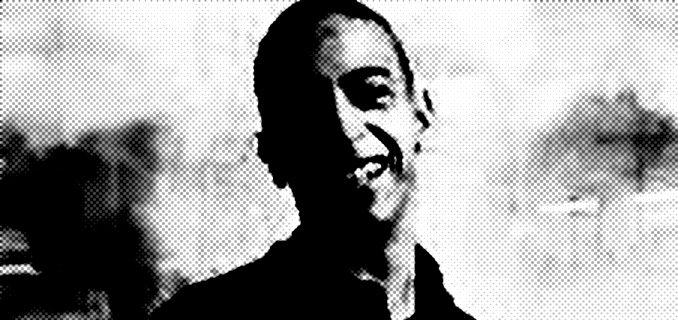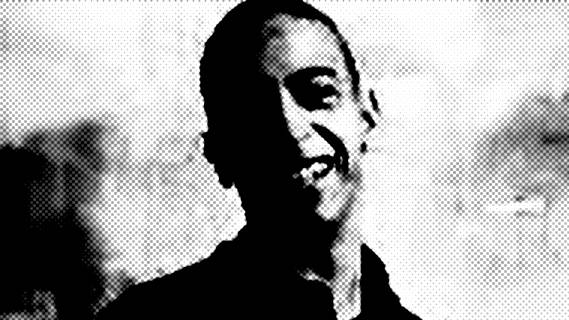The Toulouse Murders
Source: counterpunch.org

The current French presidential election campaign was rudely interrupted at its very start by a series of murders in and around the southwestern city of Toulouse. On March 11, a paratrooper was shot dead by a mysterious motorcyclist in Toulouse. Four days later, in the nearby garrison town of Montauban, two more paratroopers were shot dead in similar circumstances. Then, four days after that, early in the morning of March 21 in a residential neighborhood of Toulouse, a helmeted gunman approached a Jewish school and coolly shot dead a rabbi and three children at point blank range before driving off on his motorcycle.
Since the targeted paratroopers were reported to be of North African extraction, the first wave of reaction focused on the assumption that the gunman was a far right racist, comparable to the Norwegian mass murderer Ander Behring Breivik. Commentators and politicians rushed to blame rightwing campaign rhetoric for “stirring up hatred”. Bernard Henry Lévy recycled his perpetual accusation that France is inherently anti-Semitic, writing: “So there you have it, France is a country where in 2012, in the third largest city, one can shoot at a Jewish school and kill several innocent children at point blank range.” The insinuation that France as a whole was somehow guilty was echoed on the front page of the International Herald Tribune, which predicted that the political debate around the shooting was likely to continue as “soul-searching about the nature of France”.
The reactions necessarily shifted drastically after it was reported that the lone killer had been identified as a 23-year-old Frenchman of Algerian extraction, Mohamed Merah. Rather than a neo-Nazi racist, the killer presented himself as an Al Qaeda fighter. As police surrounded his apartment in Toulouse, he reportedly claimed by telephone that he had killed the paratroopers for having fought in Afghanistan and murdered Jewish children to “avenge Palestinian children”.
At this news, the establishment reaction changed register. While still condemning anti-Semitism, politicians and commentators now hastened to stress that Mohamed Merah was certainly not at all representative of the peaceful, law-abiding Muslim community of France. This was obvious enough. But the majority of the political-media establishment apparently thought it needed to be repeated ad infinitum. This point was stressed even by National Front candidate Marine Le Pen, implicitly the main target of accusations that campaign rhetoric had inspired racist killing. She now could say that she had been right to warn that authorities were not paying not enough attention to the radical Salafist minority of Islamist extremists.
Meanwhile, in sharp contrast to the quasi-unanimity of the media-political establishment, there was a veritable explosion of disbelief and suspicion on the internet. Who was Merah? Some doubted that he was the killer. Was this a “false flag” ? Or “black propaganda”? Or some such contrived operation designed to influence the election, arouse anti-Muslim sentiment, and justify an attack on civil liberties at home? And who profits from the crime? To some, the immediate answer seemed obvious: Sarkozy. It was even suggested that the President himself must be behind this, in order to win an otherwise lost re-election.
The mainstream press completely ignored the undercurrent of suspicion, which is becoming more and more common ever since the September 11, 2001, attacks on the World Trade center. It is symptomatic of a deepening alienation from and distrust of the entire political establishment in the Western world. There is so much fakery in the official discourse that a growing number of people refuse to believe anything that comes from authoritative sources.
In any case, the official story contained elements that were bound to arouse suspicion.
Merah was well known to police and should have been a prime suspect from the start. He had made an appointment with his first victim using a traceable family computer. If police had acted more swiftly, it seems he could have been apprehended before committing his subsequent crimes.
Merah’s detailed claims to have committed the crimes, and his explanations of his motives, were made by telephone first to the France 24 TV channel and then to police negotiators trying to get him to surrender. But the public has not been allowed to hear these conversations.
Despite Sarkozy’s order to capture Merah alive, after over 30 hours of siege the final assault ended in a hail of gunfire, with Merah dead from a bullet through his head. There can be no trial, no questioning.
Strangest of all was Merah’s highly unusual travel itinerary, reportedly taking him to Lebanon, Turkey, Syria, Tajikistan, Afghanistan, Pakistan and even Israel, a detail which feeds speculation that he may have been a Mossad agent as well as a Taliban trainee. Such globe trotting requires large amounts of money and know-how. Merah had no steady job and no regular income.
Merah had a contact with an agent of the French internal intelligence agency DCRI, which suggests to some observers that he had been recruited as a police informer after his multiple arrests for petty thievery.
These and a few other factors have fueled suspicion that Merah was framed, or manipulated, or deliberately allowed to commit his crimes in order to influence public opinion for Sarkozy, or for Israel, or for war against Islam.
As president, Sarkozy had the privilege for two or three days of displaying his indignation, stressing his resolve to “defend the Republic”, in short of “embodying the nation”, while the election campaign was suspended and his rivals reduced to standing mute at funeral ceremonies where Sarkozy reigned. While commentators praised his reaction as flawlessly statesmanlike, in the eyes of many he overdid his dramatization of the tragic circumstances to upstage his rivals. The political opportunist characteristically takes advantage of events more than he creates them. In any case, polls have shown no impact on voters’ intentions from the Toulouse killings. The Toulouse drama is unlikely to affect the outcome of the presidential election, which takes place in two rounds on April 22 and May 6. Voters are more concerned with economic issues. Sarkozy still trails his main Socialist rival by the same wide margin for the decisive second round of voting on May 6.
Five years ago, Sarkozy campaigned as a “law and order” candidate, and cannot plausibly do so again. Despite the rhetorical promises to fight crime, his government has been cutting back personnel in the police just as in the schools and in hospitals, to “save money” by reducing the public sector, impoverished by his tax breaks to his rich friends.
The official version of such events usually contains two elements that tend to arouse suspicion. One is the need to cover up official incompetence. The other is the desire to reassure the public. Both usually involve talking down to the public and ignoring troublesome facts.
Had security services tried to use Merah as an informer, and lost control of him along the way? However one looks at it, the element of police incompetence in this case seems undeniable. The failure to capture him alive seems inexplicable.
Is it credible that a young man could decide by himself to carry out such killings? The reasons reportedly given by Merah for his acts are more understandable than the acts themselves, and the acts did clearly take place. We are constantly told that we are at war, against “terrorism”. We are all expected to be on the same side, but at the same time the war involves “identity” labeling. A “holy warrior”, whether a U.S. Marine in Afghanistan or a self-styled Mujahid in Toulouse, may be so blinded by the story he has learned or told himself about this war as to fail to see his own actions in a normal human light. These motives may be similar in both cases: a desire for revenge against a group seen as the enemy of the group with which the perpetrator identifies.
It does not strike me as impossible that a young man, described by those close to him as “unstable”, after an adolescence of engaging in petty crime, could have had a quasi-religious conversion to “give his life meaning”, and was moved to avenge the killings he heard about in Afghanistan, Pakistan or Gaza. Killing Afghan children to avenge buddies, or Jewish children to avenge Palestinian children, is part of the same cycle. No human impulse is more glorified in the arts than revenge, and none is more destructive. The first step toward ending the cycle is to recognize it. This does not, as seems to be an almost universal fear, mean “justifying the crime”. On the contrary, it means condemning the entire cycle of crime and vengeance.
The Spanish precedent
Eight years ago, on March 11, 2004, Spain was shaken by a massive bomb attack on trains around Madrid, killing 191 people and injuring nearly two thousand. This happened only three days before general elections to choose a new government. To make a long story short, after the conservative Aznar government initially blamed the Basque separatist group ETA, only to be contradicted by evidence pointing to an Islamist terrorist ring, Spanish voters elected a Socialist government which hastened to end Spain’s involvement in the war in Iraq.
This amounted to a tacit recognition by the Spanish majority that the deadly terrorist attacks were essentially a “chickens come home to roost” operation, a lesson in “what you sow also shall you reap”. It was a warning to stay out of wars on Muslim lands, or else the result of “asymmetrical warfare” would be bringing wars to the West. What is very interesting is that the Spanish reaction was to break the cycle. As simple as that.
This will not be the reaction in France. Neither the present government, nor even a future one, will dare to do anything that could be interpreted as “giving in to terrorism.”
Instead, the political posturing and fakery go on. Since it is politically impossible to suggest that war may be partly responsible for inciting violence, the violence is being blamed on France itself. Echoing the Bernard-Henri Lévy line, professor Guy Haarscher of Brussels University announced that the Toulouse killing marks the “return of hard-core anti-Semitism to France.”
While such statements can only feed growing anxiety in the Jewish community, many in the Muslim community fear that Merah’s crime will exacerbate hostility against themselves. Despite shows of unity between religious leaders, Merah’s attack on the Jewish school in Toulouse has served to strengthen the gap in perception between the Jewish community and much of the Muslim population.
In a second front-page article on March 30, the International Herald Tribune highlighted remarks by a former friend of the killer identified as Faoud, who blamed the murders on Merah’s feelings of alienation in France. “It was not Al Qaeda who created Mohamed Merah. It was France.”
In both cases, the villain becomes the French people with its alleged racism. Those are two ways of putting responsibility for child murder on the presumed subjective attitudes of the French population as a whole.
The establishment’s method of damage control is to harangue the public constantly on the need to reject racism and have good sentiments. Much of the political class feels perpetually obliged to lecture the nation from on high against the dangers of the racism they assume is lurking below.
For decades, laws against racist speech have been enforced in France. Just this week, the 78-year-old patriarch of the Guerlain perfume firm, Paul Guerlain, was convicted for an offhand remark offensive to blacks. (« Pour une fois, je me suis mis à travailler comme un nègre. Je ne sais pas si les nègres ont toujours tellement travaillé, mais enfin... » were his words during a television interview. Literally, “For once, I got to work like a negro. I don’t know if negroes have also worked so much, but anyway…” The term “travailler comme un nègre” is an old cliché, and the sheltered Guerlain may not have realized that it had become politically incorrect in the second half of his lifetime.) After demonstrations against him, Guerlain apologized, saying that he had been trying to amuse the journalist who interviewed him. Nevertheless, he was fined 6,000 euros, divided between three associations that brought suit against him for his remarks.
The Guerlain case can be seen as a move by black associations to catch up with Jewish human rights associations, which for decades have led the way in bringing suit against individuals for remarks considered anti-Semitic. French law allows such lawsuits to be a source of revenues for established “human rights” organizations.
It is very doubtful that such repression of public speech actually succeeds in reducing private racist thoughts or expressions. It could even be argued that it has a contrary, backlash effect. But since thoughts are still private, nobody knows.
The French are particularly obsessed with psychology and subjective feelings. The point is not that such sentiments do not exist, nor that they are insignificant. But sentiments are impossible to control by exhortations and laws. There is much more concentration on the presumed “incorrect feelings” of the French population than on the unquestionably real involvement of France in Middle East wars of no interest to the majority of the French population. It would be more useful to examine the role of Middle East conflicts in creating hostilities at home than endlessly denouncing the French people for their incorrect thoughts. But France’s foreign policy – its role in starting the Libya war, its aggressive stance toward Syria, its total alignment with Israel and the United States in the Middle East – is not a major issue in the current presidential election, with the main Socialist candidate François Hollande adhering to this policy.
Diana Johnstone is the author of Fools Crusade: Yugoslavia, NATO and Western Delusions. She can be reached at diana.josto@yahoo.fr
Red Ice Radio
Diana Johnstone - War on Libya: Perpretators & Manipulators
Source: counterpunch.org






















